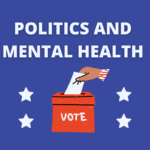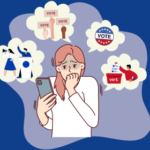In today’s political climate, each presidential election seems to leave a significant portion of the population grappling with feelings of anxiety about what the future may hold. If you find yourself among those who are feeling uneasy following the recent election, it’s essential to understand that there are numerous healthy strategies you can implement to effectively manage this anxiety. Engaging in proactive measures not only helps alleviate stress but also empowers you to take charge of your emotional well-being during these uncertain times.
Effective Behavioral Strategies for Managing Anxiety
Here are several actionable tips to help you take control of your actions and reduce anxiety:
- Be mindful of your media consumption: Make deliberate choices regarding how much time you dedicate to consuming political news, whether through listening, watching, or reading.
- Limit the harmful habit of doom scrolling that often exacerbates feelings of anxiety and helplessness.
- Prioritize activities that bring you joy and fulfillment, which are unrelated to politics. Engaging in exercise, spending quality time with friends and family, or participating in spiritual practices can significantly enhance your overall mental health and well-being.
Implementing these changes is not an act of denial; instead, it is a crucial step towards preserving your emotional health and finding balance in your life amidst uncertainty.
Mindful Techniques to Alleviate Post-Election Anxiety
In addition to behavioral changes, consider adopting mental strategies that focus on mindfulness. Post-election anxiety often arises from worrying about the future and what it holds for you, your family, and the country. While these concerns are valid, the key to reducing anxiety lies not in the accuracy of your thoughts but in how you manage your reactions to them. By recognizing and observing your thoughts, you can cultivate a more mindful and less reactive approach to your mental state.
Understanding Automatic and Deliberate Thoughts in Anxiety Management
It is crucial to differentiate between two types of thoughts that significantly impact anxiety levels:
Automatic thoughts occur spontaneously and without conscious effort. For instance, thoughts like my boss is going to kill me or this is the best day ever! are examples of such automatic responses. While we cannot control these thoughts, we do have the power to determine our reactions to them once we become aware of them.
Deliberate thoughts, on the other hand, are the result of intentional effort. These thoughts may arise as elaborations or counterarguments to automatic thoughts. For example, if an automatic thought is she thinks I’m an idiot, possible deliberate thoughts could include: now we’ll never be friends or I need to explain what I meant, then she’ll change her mind.
To effectively manage your anxiety, it’s important to recognize when your thoughts shift from automatic to deliberate. Once you identify this transition or find yourself fixating on anxiety-inducing topics like politics, you can redirect your focus back to the present moment. This practice of anchoring yourself in the here and now can help diminish the overwhelming sensations of anxiety.
Often, anxiety stems from negative projections about the future. From a mindfulness perspective, it’s essential to remember that thoughts do not equate to reality. They are merely mental events that do not hold the same weight as your actual experiences. Engaging your senses and focusing on your immediate environment can effectively distance you from intrusive thoughts, especially when you’re feeling overwhelmed.
Think of a moment when you become engrossed in a daydream, only to be jolted back to reality by a friend calling your name. That moment of realization reinforces that your daydream lacks the tangible presence of real-world interactions. Similarly, when you notice that anxiety-provoking thoughts about the election have consumed your attention, gently guide your focus back to your sensory experiences. Remain present for a few moments, acknowledging any temptation to revert to your previous thought patterns. With consistent practice, you can build resilience against being drawn back into cycles of post-election anxiety.
Common Questions Regarding Mindfulness and Anxiety Management
You may be questioning whether using mindfulness as a tool for managing anxiety means ignoring challenging realities. In fact, practicing mindfulness does not preclude you from being informed or concerned about pressing issues. Instead, it equips you with the tools to better regulate your anxiety levels as you navigate these topics.
Another common inquiry might be, “does this advice suggest avoiding thoughts that trouble me?” The intention is to counteract the unhealthy tendency to fixate on political discourse. You are encouraged to recognize that while it may seem like distressing topics monopolize your attention, you possess the ability to disengage and redirect your focus whenever you choose.
Empowering Strategies to Mitigate Post-Election Anxiety
By incorporating a range of actionable steps and mindfulness-based techniques into your daily routine, you can effectively reduce your post-election anxiety. These practices are designed not only to enhance your mental health but also to foster a greater sense of control and well-being in your life.
The author would like to acknowledge the contributions of Justin Arocho, PhD and Austin Harrison PhD to this blog.


















